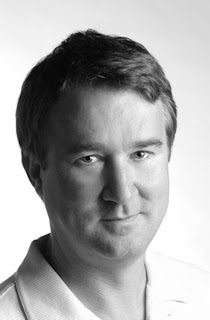 Photo of the Basilique Saint-Denis: stevecadman (Flickr CC)
Photo of the Basilique Saint-Denis: stevecadman (Flickr CC)
Gesamtkunstwerk. You're welcome.
While on a search for something else entirely, I came across this speech given by Giep Franzen from way back in 2001 to promote his then new book: Strategic Management of Brands.
Gesamtkunstwerk was coined by Richard Wagner who was trying to break away from the Italian opera model of the time where music was given the priority and the drama was entirely subordinated. He saw Gesamtkunstwerk as: "an interconnected whole, subject to a dominating fundamental principle or truth, and strived towards an absolute oneness of action and thought." The best of the best from a Gesamtkunstwerk perspective, Franzen says are the Gothic cathedrals inspired by the Basilique Saint-Denis in Paris.
Franzen translates Gesamtkunstwerk into nine elements that can translate to branding success. The five I found the most interesting:
1. A utopia: a common idea, a philosophical or even a metaphysical ideal from which an attempt is made to (re)create material reality. An abstract central idea, a mental construct. In terms of brands, we could talk of a brand vision, a set of core values and a brand personality.
2. A peddler: a spiritual father (or mother!) that puts the utopia into words, and is its personal embodiment. This is also someone that takes it further than an abstract idea, but who sees the (re)shaping of reality into this idea as his primary mission. When it comes to brands, we call such a person a ‘brand steward’.
3. Totalitarianism: the subordination to the utopia of the artists who form the group. They recognise and accept the ideal, and are willing to submit themselves to its realisation. The resistance against it, as is the case with free artists and applied arts such as those in the communications industry, form the greatest obstacle to giving shape to Gesamtkunstwerken.
4. Interdisciplinary: the co-creating professionals coordinate their contribution in such a way that the mental construct is expressed in all the material aspects of the work. The ‘doubling effect’ is to be avoided, and the disciplines are to be made as complementary as possible.
5. Continuity: Gesamtkunstwerk is not approached as a project that is subject to a system of planning and execution, but as a permanent design and consummation of the work of art in time, based on the starting points of the ideal. With brands, this leads to the need to work from a sense of historical awareness.


1 comment:
So glad to see this post. I'm a former theatre director turned business consultant and this is what I try to communicate to business leaders all the time: a strong brand grows from strong central idea or construct that drives everything the company does. Getting to that idea is hard, hard work, and few have the patience for it, because it's value cannot be measured in the short term. THIS is EXACTLY what business can learn from the arts. Thanks! -- Julia
Post a Comment